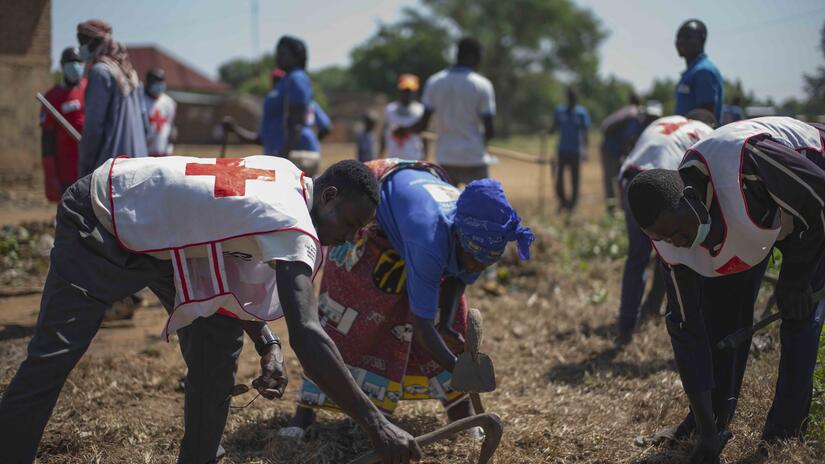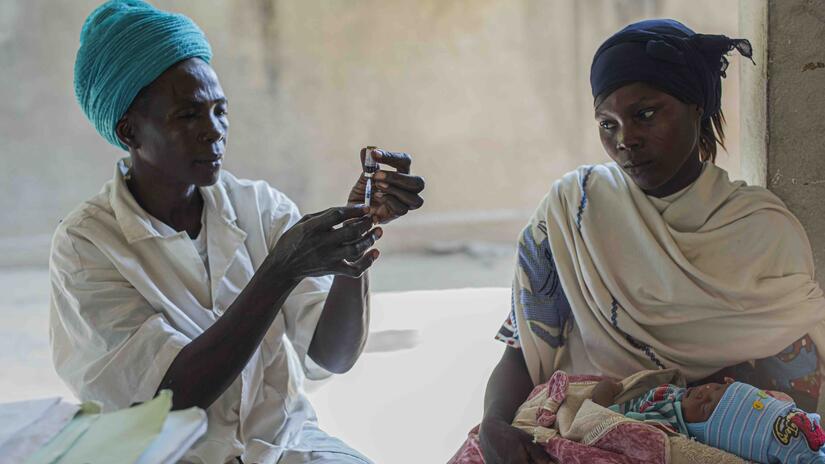In the outskirts of Bongor, a town on the western border of Chad, volunteers from the local Red Cross and the French Red Cross are hard at work.
In a residential area teeming with children and animals — and under daily scorching heat — the volunteers are organising activities with the community aimed at helping prevent and control the spread of infectious disease.
The community here lacks the infrastructure needed to deliver safe water or discharge their wastewater. And because public fountains used for gathering water are not maintained rigorously, the risk of infection here is high.
Lack of sanitation systems means that other risky practices, such as open defecation, pose significant hygienic and epidemiological risks.
For this reason, the volunteers are raising public awareness about ways people can protect themselves from infection, such as proper cleaning and sanitation of water sources as well as practices to avoid.
“The activities raised real awareness among community members,” says Catherine, a 26-year-old volunteer for the Chad Red Cross and local resident. “We notice in particular that the vaccination centre is much busier.”

Volunteers with the Chad Red Cross clean a field that has been used by people as a place to go to the bathroom.
Photo: IFRC
A pharmacy technician, Catherine has been volunteering with the Chad Red Cross for more than a year. She is responsible for raising awareness of the dangers of open defecation.
Red Cross volunteers and community members are mobilised three times a week to clean areas most at risk and raise awareness of good practices.
“The project will continue to live on its own on the principle of the community transmitting [this information] to the community,” Catherine adds.
Catherine is passionate about her work to build knowledge and resilience in her community, and stop diseases from spreading. “The objective,” she explains, “is to fight measles, yellow fever, poliomyelitis, Guinea worm and COVID-19”.

A mother watches on as a health worker in Bongor, Chad, immunizes her child.
Photo: IFRC
The Red Cross volunteers use community disease surveillance methods to keep people safe – recording health-related data about specific issues or incidence of illness affecting the community, and encouraging people to report suspected cases.
For Marie-Claire, a state-certified nurse and resident of Bongor who manages a women-led health centre in the city, the Red Cross efforts are effective because they have built trust with people in the community.
"The Red Cross serves as a trusted intermediary between residents and the health centre,” she says. “The Red Crossconducts disease surveillance and sends pregnant women or those suspected of illnesses for consultations [with the health centre]."
The volunteers’ disease-prevention work in various neighbourhoods of Bongor is supported by the Programmatic Partnership between the IFRC network and the European Union. The partnership provides strategic, flexible, long-term and predictable funding, so that National Societies can act before a crisis or health emergency occurs. It is being implemented in 24 countries around the world.

